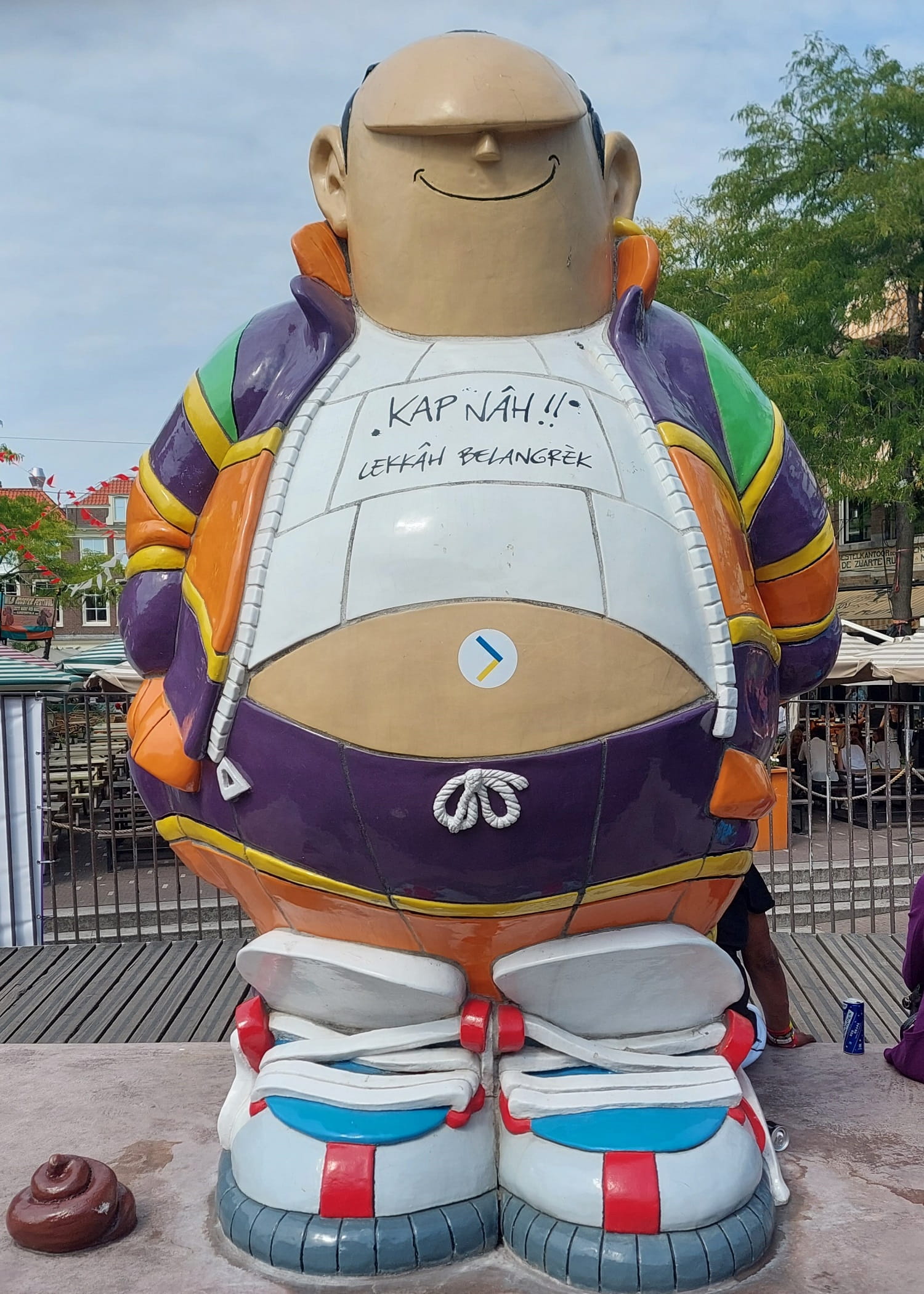Attitudes to “chavs” and Haagse Harry are compared in a paper published in the International Journal of Language and Culture.
Dr Amanda Cole of the University of Essex and Emeritus Professor Ingrid Tieken-Boon van Ostade of the Leiden University Centre for Linguistics compare chavs, who personify contemptuous commentary on the working class in England, with a similar figure in The Netherlands: Haagse Harry (Harry from The Hague). It is remarkable how many of the associated characteristics and behaviours of chavs fit Harry like a glove, such as wearing bling and tracksuits, and supposed antisocial behaviour and laziness.
But there is one big difference. Though Harry is a fictional character and a humorous emblem of working-class culture in The Hague, he is afforded greater respect, status and prestige than chavs are in England. There is a statue of Harry (with a raised middle finger behind his back) in a popular square in the city centre of The Hague. Upon seeing the statue, English tourists would most likely identify Harry as a chav, though it is very hard to imagine a similar statue celebrating “chavviness” in England.
 A statue of Haagse Harry in The Hague Photo taken by Ingrid Tieken-Boon van Ostade
A statue of Haagse Harry in The Hague Photo taken by Ingrid Tieken-Boon van Ostade
Amanda and Ingrid looked at various portrayals of Haagse Harry and supposed chavs in England, for instance, in TV shows, books and on social media like TikTok. They found that there are differences in the status and prestige afforded to the accents of chavs and Haagse Harry, and found that there isn’t one single way of speaking that is “chavvy”. Instead, fictional chavs, as portrayed in popular television series, consistently use the accent of the place they are supposed to be from whether London, Yorkshire, Bristol, Manchester or anywhere else. Regardless of where they are from, chavs speak with a broad working-class accent.
Haagse Harry’s accent, by contract, is strictly local. He speaks Broad Haags, a working-class version of the accent from The Hague. It is an accent that has certain positive connotations, even with people who are unlikely to speak it because who are not working class. The Dutch king, for instance, was known to imitate the accent when he was a boy. Broad Haags has actually been codified, so that it has its own spelling which is used in local adverts, songs and publications such as comic books. There are even spelling bees for Broad Haags!
While both chavs and Haagse Harry speak with working-class accents, there is a clear difference in attitudes to these figures and their accents. Haagse Harry’s accent is accepted, but chavs are often mocked for supposedly not speaking properly, coherently or articulately.
Through their research, Amanda and Ingrid show that chav caricatures not only reveal class prejudice in England but also, embedded within that, prejudice and contempt for working-class accents. Though chavs and Haagse Harry are, at first glance, very similar figures, they reveal different patterns of accent and class prejudice in England and The Netherlands.



 A statue of Haagse Harry in The Hague Photo taken by Ingrid Tieken-Boon van Ostade
A statue of Haagse Harry in The Hague Photo taken by Ingrid Tieken-Boon van Ostade